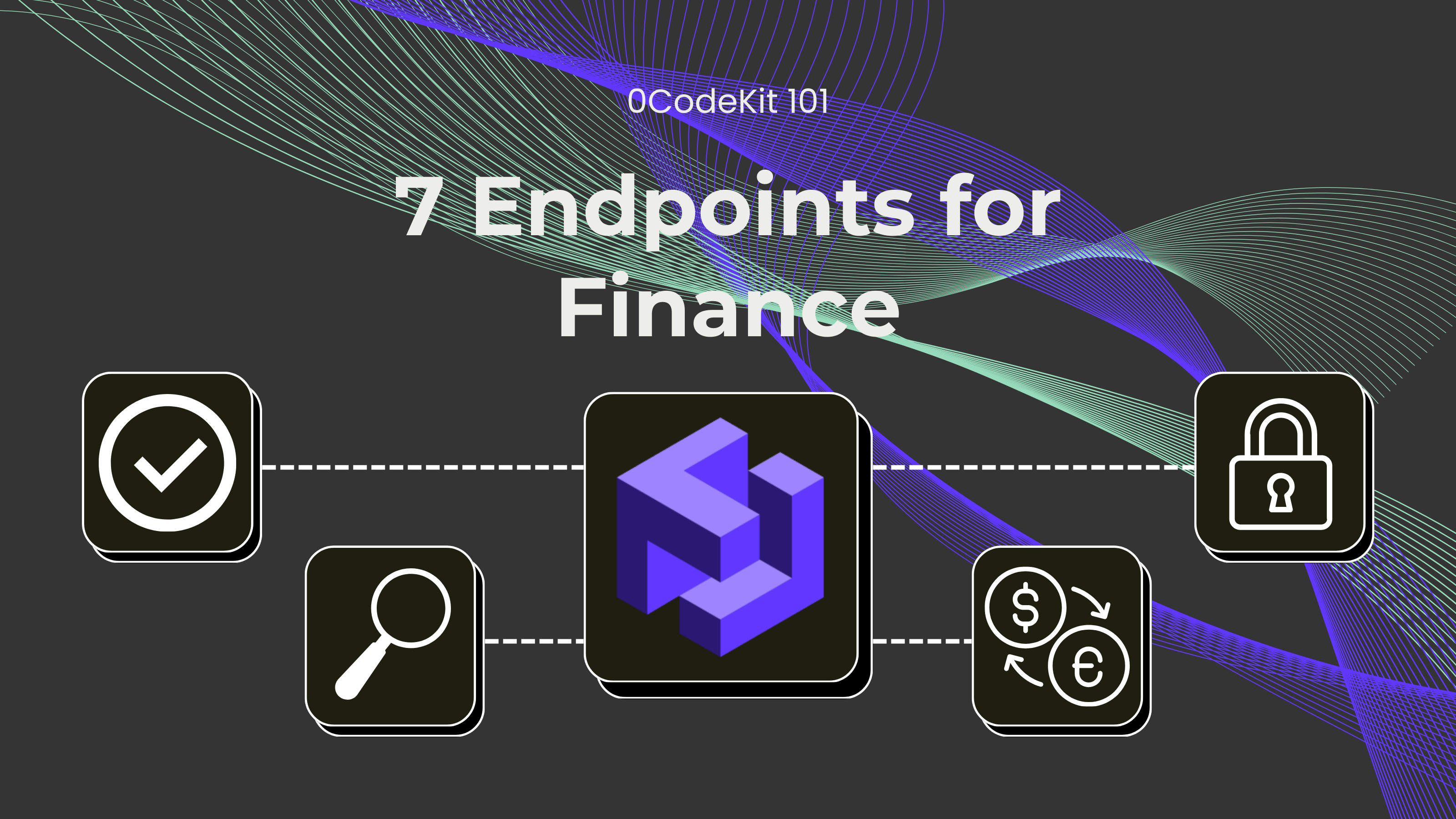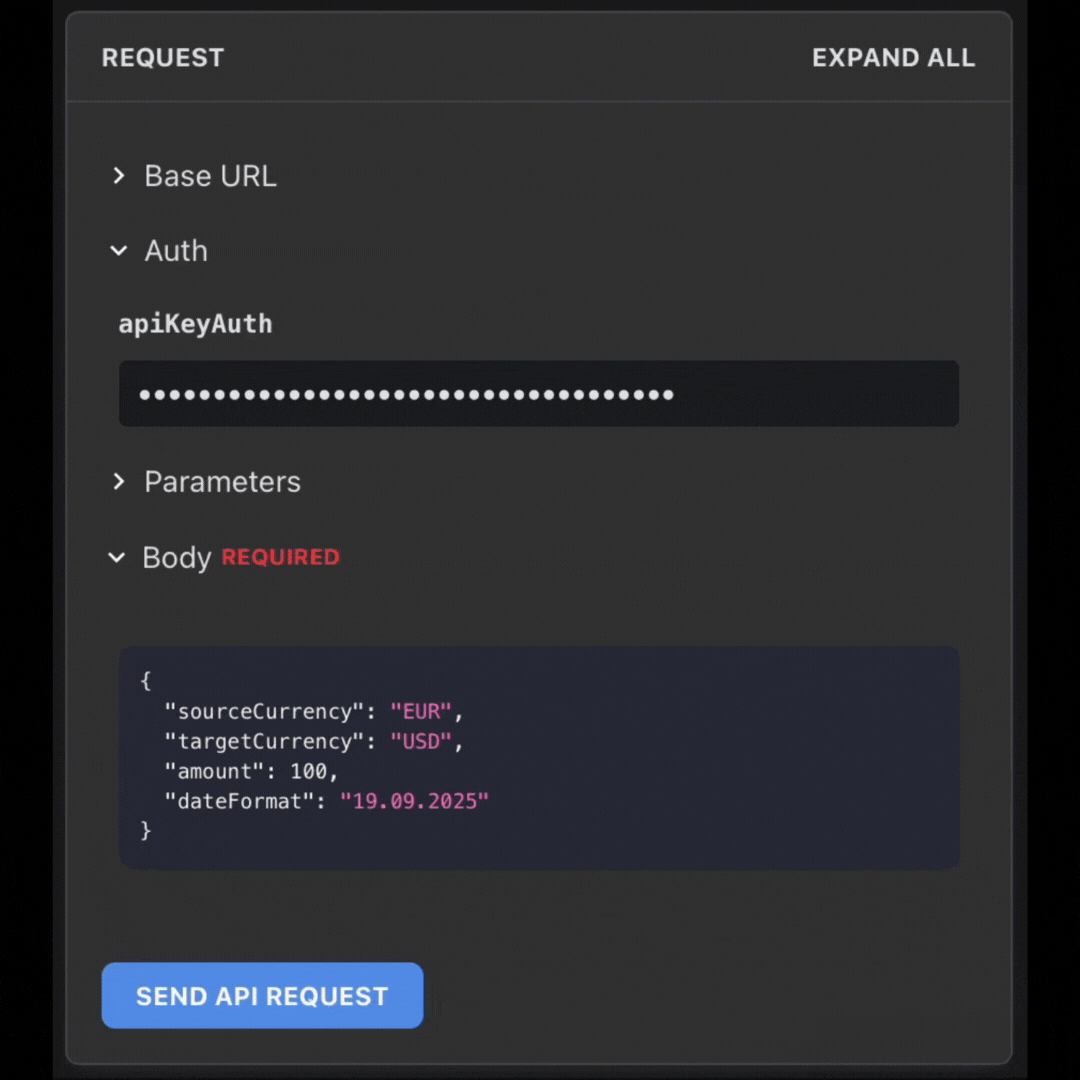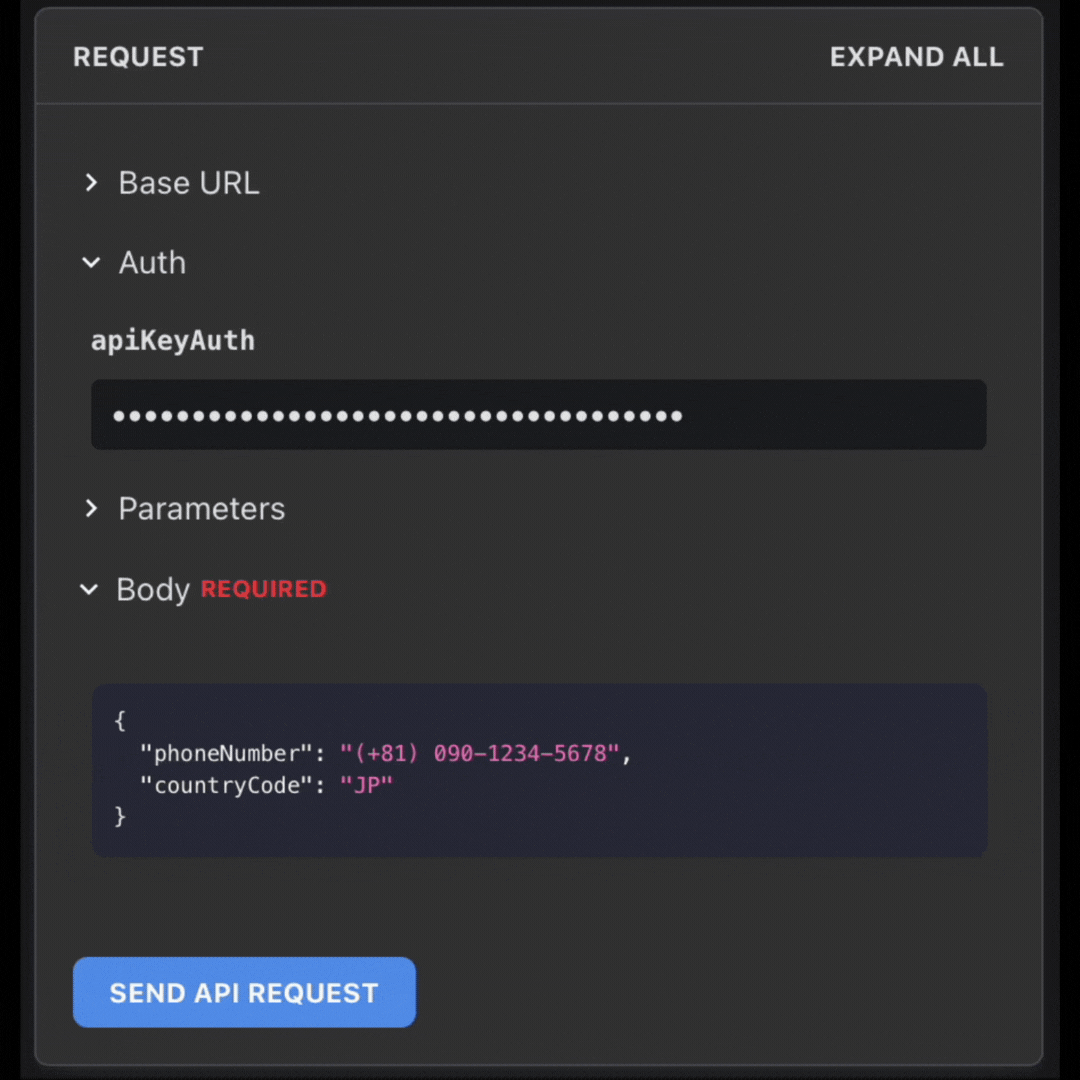7 Endpoints for Finance


The finance industry, like any other industry, has many issues ranging from meeting the necessary regulations to protecting and optimizing its processes. To address these challenges, financial organizations require effective methods that optimize efficiency, security, and ease of operation. We believe API endpoints are great resources to help with such issues. That's why we'll explore seven API endpoints that can make a significant impact on financial operations:
What it does: It aims to check International Bank Account Numbers (IBANs) and make sure they are valid. This endpoint checks for the authenticity of an IBAN and makes sure that international transactions are successful.
Why it matters: Picture yourself transferring money to a friend or a family member in another country, only for you to discover that the account number was wrong, which could mean delays, additional charges, or even unsuccessful transactions. The IBAN validator eliminates those risks by checking the validity of the IBAN before making any transfer.
What it does: It validates the Bank Identifier Code (BIC), which is very important to identify the right bank in international transactions.
Why it matters: International transactions are delicate, and every single element of the payment must be accurate, as a valid BIC aids in the routing of payments. The BIC Validator allows financial institutions to make sure that the money is being delivered to the right person or entity.
What it does: It helps with faster conversion from one currency to another with up-to-date exchange rate information. People can type in a number and then choose which currencies they wish to convert.
Why it matters: Different currencies are now commonly used due to globalization, and people use them very often. So, for foreign exchange services for their clients, investment in international or any other day-to-day transactions, the Currency Converter improves accuracy, transparency, and reliability for their clients.

What it does: It offers the current VAT rates within any country of your choice. Users only enter a two-letter country code, and they will be able to receive precise information on taxes within the shortest time possible.
Why it matters: For organisations that have their operations in more than one country, the calculation of value-added tax is vital. This endpoint provides such convenience for financial institutions and their clients, as they can be certain that they are charging or paying the right amount of tax.
What it does: It checks if a given VAT number is valid or not. Users can check and validate their VAT ID in two different ways: either they enter the full VAT ID or enter the code of the country and the VAT.
Why it matters: There is nothing more important and relevant than compliance and fighting against fraud in the financial industry. The VAT ID Validator helps institutions ensure the companies they conduct business with are real and registered for VAT as required by law.
What it does: It ensures sensitive information is protected by converting the plain text to ciphertext using the Advanced Encryption Standard (AES) and a secret key.
Why it matters: The financial sector relies heavily on data for making important decisions. Therefore, the Encryptor safeguards the integrity of sensitive content through encryption of the data, so financial institutions can protect themselves from unauthorized access.
What it does: It scans and validates phone numbers for any possible errors and usability.
Why it matters: One of the most important aspects of communication is having the correct contact details. This endpoint is useful for financial institutions to get the correct contact information on customers in their database to be able to reach them.
